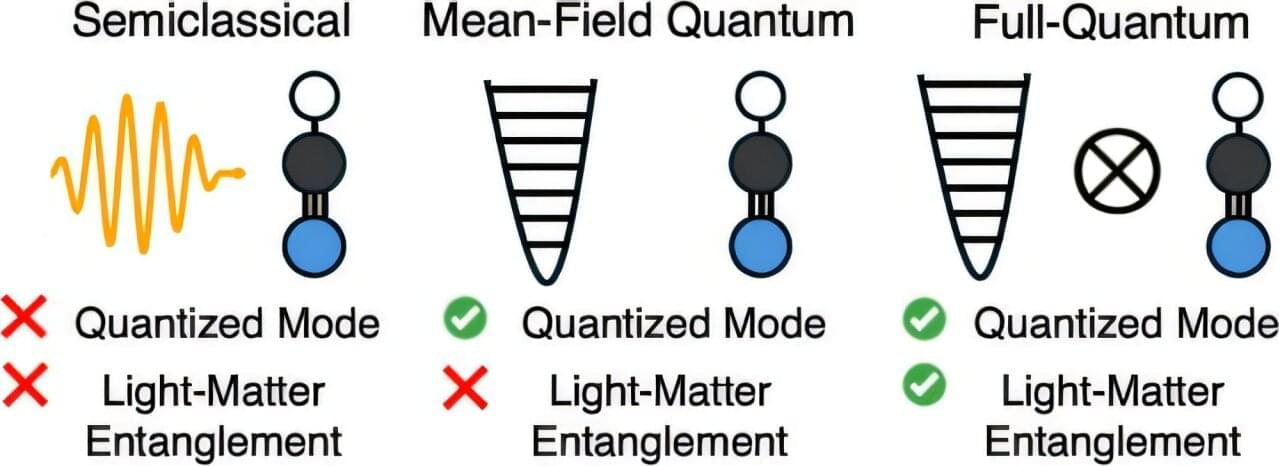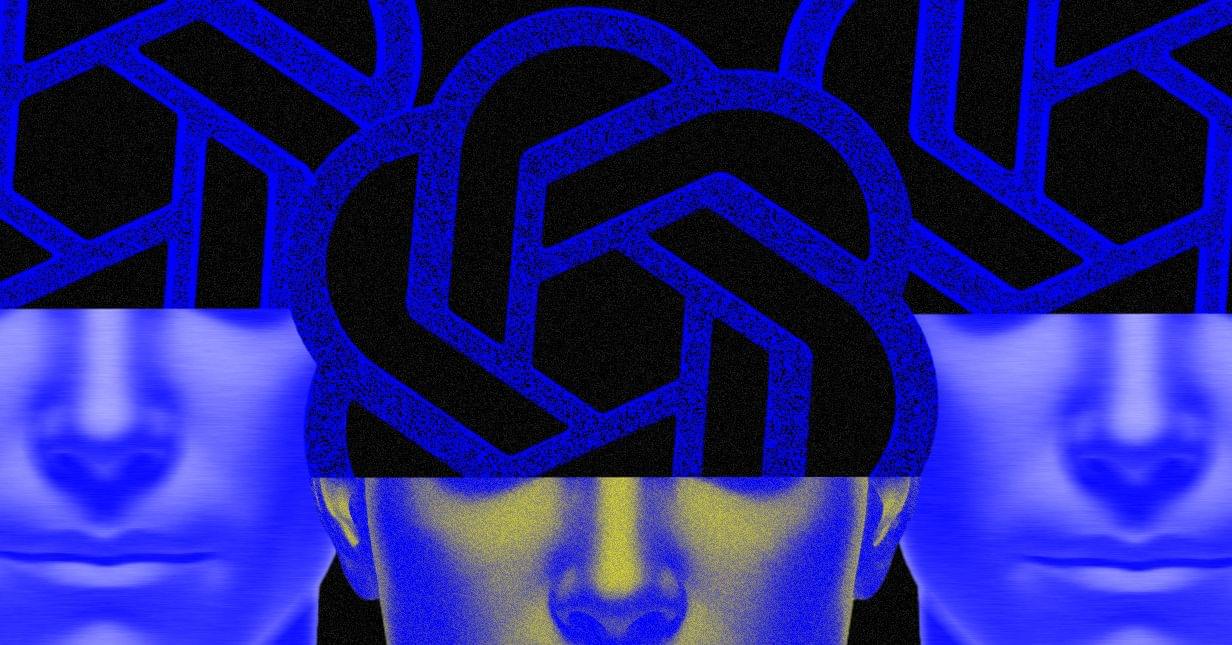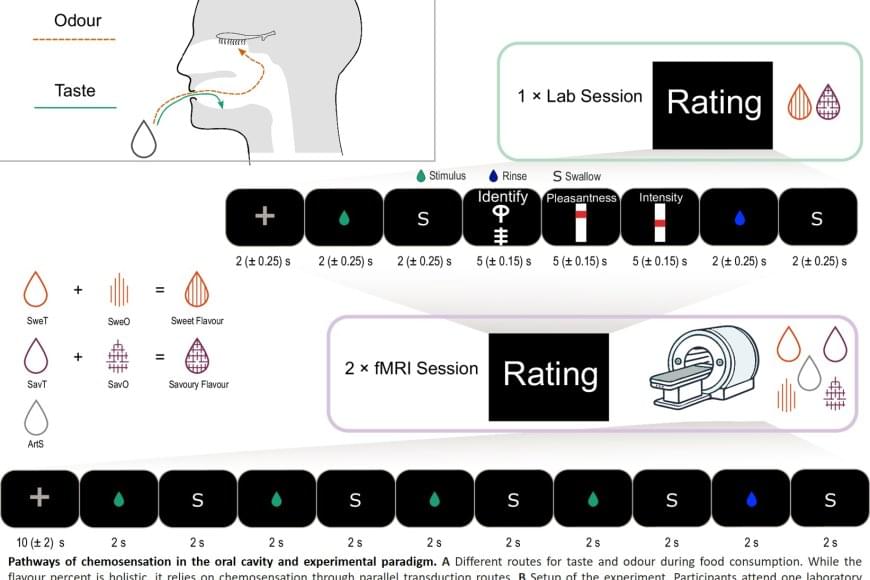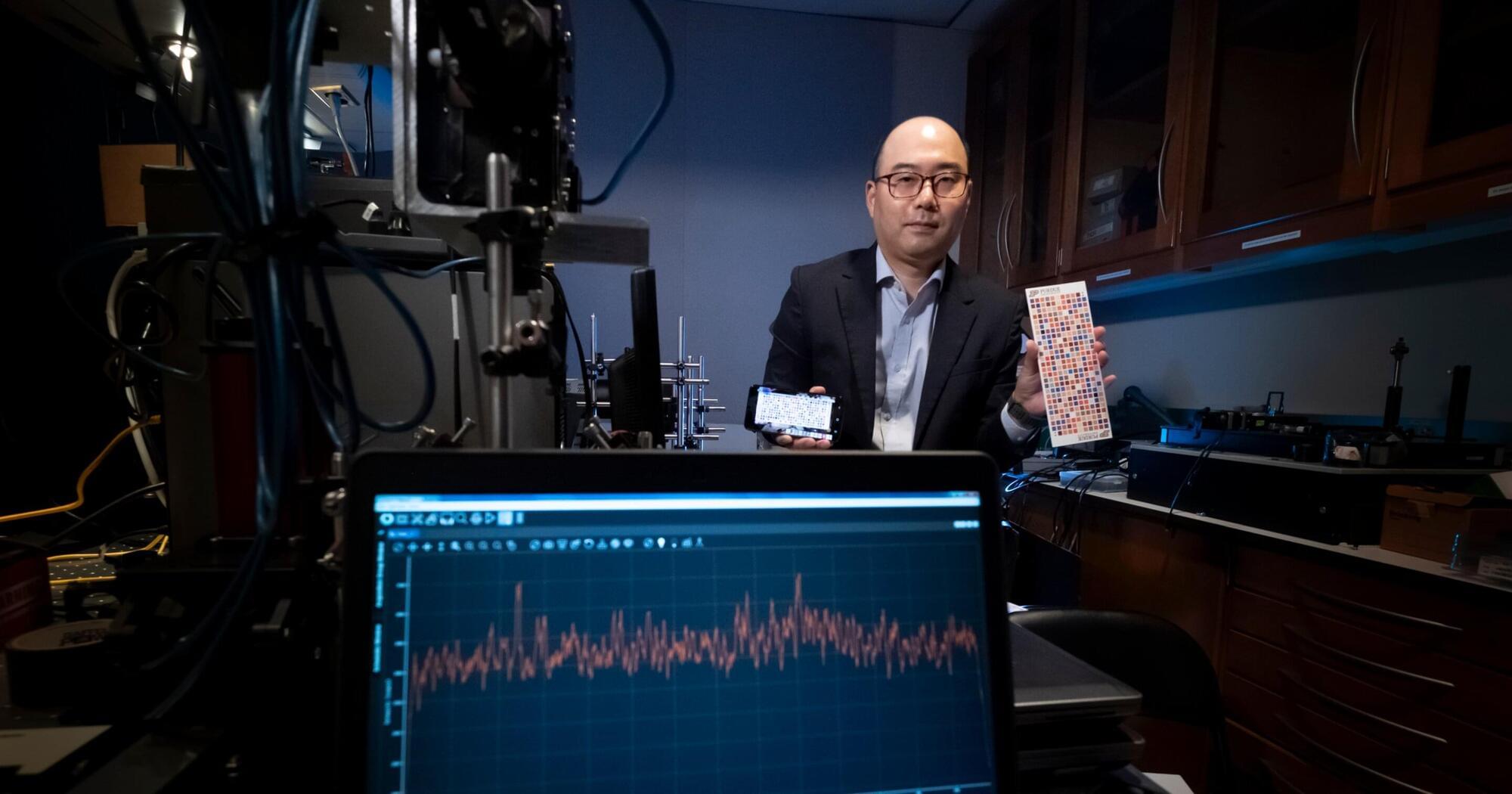This is what fun looks like for a particular set of theoretical chemists driven to solve extremely difficult problems: Deciding whether the electromagnetic fields in molecular polaritons should be treated classically or quantum mechanically.
Graduate student Millan Welman of the Hammes-Schiffer Group is first author on a new paper that presents a hierarchy of first principles simulations of the dynamics of molecular polaritons. The research is published in the Journal of Chemical Theory and Computation.
Originally 67 pages long, the paper is dense with von Neumann equations and power spectra. It explores dynamics on both electronic and vibrational energy scales. It makes use of time-dependent density functional theory (DFT) in both its conventional and nuclear-electronic orbital (NEO) forms. It spans semiclassical, mean-field-quantum, and full-quantum approaches to simulate polariton dynamics.







